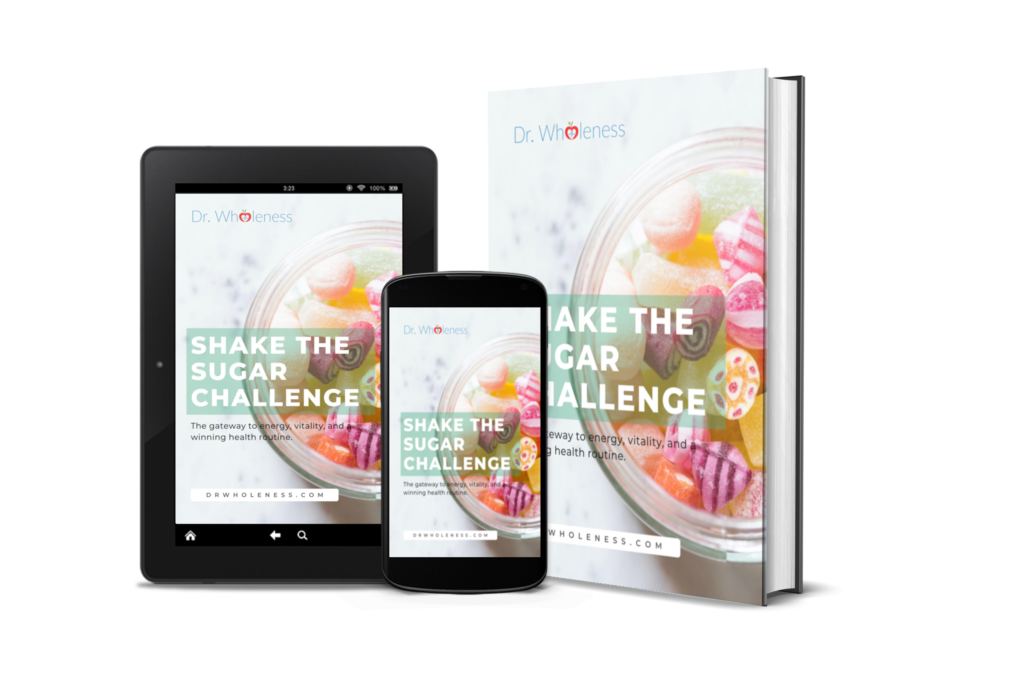If you’re struggling with getting obesity under control, you may be overlooking some simple nutritional strategies and vitamins for fat loss.
Here are 4 nutrients to make fat loss more attainable and lasting:
- Protein
- Zinc
- Inositol
- Berberine
Protein intake supports fat loss
When people are decreasing calories, they often forget to increase their protein intake. This is a huge mistake.
If you are decreasing your calories as part of a fat loss plan, you want to increase your protein intake, as this will keep you from losing metabolically supportive muscle tissue in the process.
Many people lose weight with caloric restriction but that weight is often 50% muscle and 50% fat. However, when you increase your protein when you decrease your calories, studies show there is little to no muscle loss and efficient fat loss.
With caloric restriction alone, you may lose 20 pounds, but 10 of those pounds will likely be from muscle and bone loss, however, with caloric restriction and an increase in protein, you could lose 19 pounds of inflammatory fat tissue. This is a huge win and drastically increases the likelihood of maintaining your new weight. Not only that, but this can greatly increase one’s energy during the day because you still have the same amount of muscle on your body at 160lbs as you did at 180lbs. Huge win right?

Zinc is a vitamin that supports fat loss
Zinc is the number one micronutrient deficiency in those suffering with obesity.
Zinc supplementation of 30mg per day along with a restricted calorie diet has demonstrated favorable effects in reducing anthropometric measurements, inflammatory markers, insulin resistance and appetite in individuals with obesity, and may play an effective role in the treatment of obesity.
Inositol is a nutrient that supports fat loss
Inositol can be especially helpful for those suffering with PCOS or obesity. It supports insulin sensitivity and overall glucose metabolism.
A common underlying challenge in those struggling with obesity and PCOS is the inability to efficiently get glucose out of the bloodstream and into cells. In the process, insulin levels rise and appetite regulation becomes more and more difficult because cells are starving for an energy source. Inositol helps overcome this.
Anybody that has ever tried to change their food routine and walk away from floury, sugary foods knows that it is a whole lot easier when you aren’t walking around feeling ravenous all the time. Beyond glucose, insulin and appetite, inositol has been shown to improve cardiac markers and liver function in obese people.
Berberine is a supplement that supports fat loss
Berberine which is extracted from Oregon Grape but also found in many other plants is a mainstay for those working to overcome obesity or support fat metabolism. In fact studies on berberine show it can reduce insulin resistance, and improve insulin sensitivity of muscle, liver and fat cells to insulin.
Not only that, but berberine, reduces fat formation, positively impacts gut bacteria balance, and boosts hormones that supports a feeling of satiety.
Berberine’s ability to decrease leptin secretions, the hormone that stimulates hunger may be the coolest part of all. As so many patients have told me over the years when working to transform their body composition and overcome obesity, they are often so hungry especially the first 3 months and at some point they just can’t take it anymore. So much of this is related to appetite hormone resistance.
Bringing on board, zinc, inositol and berberine along with adequate protein increases the likelihood of being able to truly transform one’s food habits and experience a life free of obesity and over the top food cravings.
One final note, obesity is not about your outward appearance. The problem with a state of obesity is that it skyrockets one’s risk of joint and bone disease, psychiatric disorders, high blood pressure, heart disease, cancer, diabetes and sleep disorders.
